The Power of Play for Adults or Why Games Are Essential to Human Experience
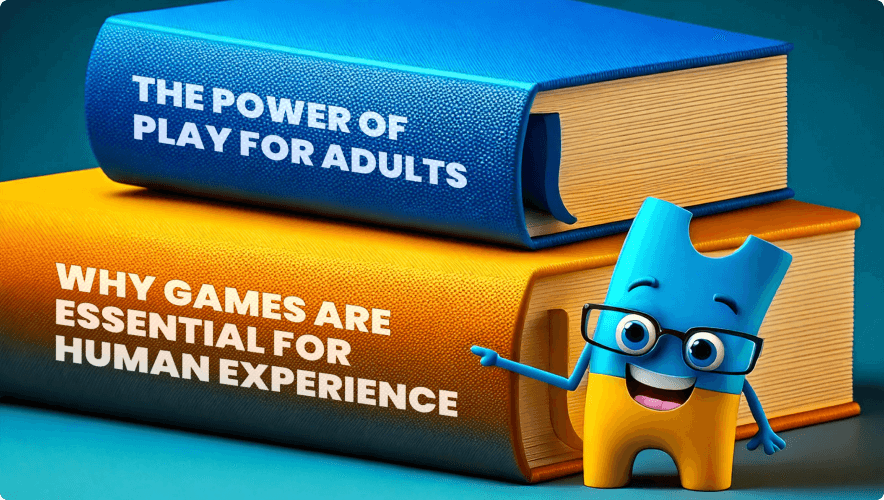
What games did you love as a child? The fun time lasted endlessly when we were kids. A tree was a mystical creature from the woods, a swing could easily turn into a spaceship, and our legs never grew tired as we played tag. Everything seemed magical, and everything could be turned into a game. When did it all change and why? Who told us that games are not for adults, and how did we end up believing this lie? Today we will be talking about the importance of play in adulthood and why you should never stop playing no matter how old you are.
Buckle up, as there’s a lot to unpack. In particular, we’ll be answering the questions like:
- Why is play important for adults?
- What are the benefits of playing games?
- What are the ways to play as an adult?
- Why do adults stop playing?
- How to reclaim the power of play in adulthood?
- What is the future of playing for adults?
Today, your audience craves interaction and fun. With Winday, let them play within your marketing campaigns and drive measurably higher engagement, retention and conversions.
Explore the Power of Games and its Marketing Potential
See how games fuel creativity and engagement. Book your personalized Winday demo today!
book a personalized demoThe Importance of Play for Adults
Why is play important for adults? Many people believe that grown-ups don’t need to engage in games as they associate it with wrong formulation of “adulting”. While we agree that we cannot dedicate our entire life to endless goofing and fun, we believe it’s essential to allocate just enough time for it to stay sane in our world. Playing games helps us retain our inner child and connect with others in a more profound way.
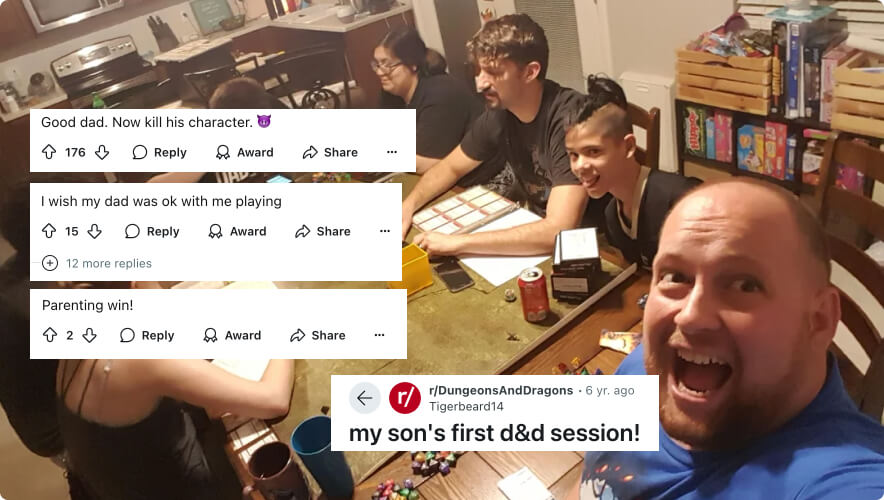
A screenshot of the post by a proud father sharing on Reddit the photo of his son’s first Dungeons & Dragons Session followed by a dark-humour comment.
There are several areas of our life that benefit from engagement in play:
- Our psyche
- Our social life
- Our body
- Our career
We talk about each of these areas in detail in our next section.
What is Play Playfulness in Adults?
To understand the importance of play in adulthood, we must first define the terminology. What is play? On the surface the answer seems simple. Most of us played as kids. Furthermore, we know that play is universal across the mammalian class and has an important role in the development of the young.
Characteristics of play that most scholars agree upon:
- Self-chosen & self-directed
- Intrinsically motivated
- Guided by rules
- Imaginative
- Conducted in an active but not stressed frame of mind
Today, most psychologists agree that games are critical for healthy child development. But what about adults? The decrease of play in adulthood is universal in the mammalian class. One of the reasons why mammal children play more is that their survival is covered by the adults. They don’t need to look for food or shelter, protect their territory, deal with predators, attempt winning a mate or care for the young.
However, overall, adult mammals do not stop playing. In fact, the lack of playing activity usually signifies that the animal is sad and stressed. Similar to mammals, we also continue playing well into adulthood. Do we really need it though? Why is play important for adults?
Interesting fact
If you look at the ancient depictions of humans playing games, the majority of them depict adults from Egyptian Queen Nefertari playing senet (c. 1279-1213 BCE) to the vase painting of Achilles and Ajax playing dice game (c. 540–530 BCE) to the “Beauty Playing Go” of the Chinese Tang Dynasty period (7-10 century CE), to the bas relief of Khmer Bayon temple depicting the game of ouk chaktrang (12 century CE), to the Aztec codex depicting the god Xōchipilli watching a game of patole (16 century CE).
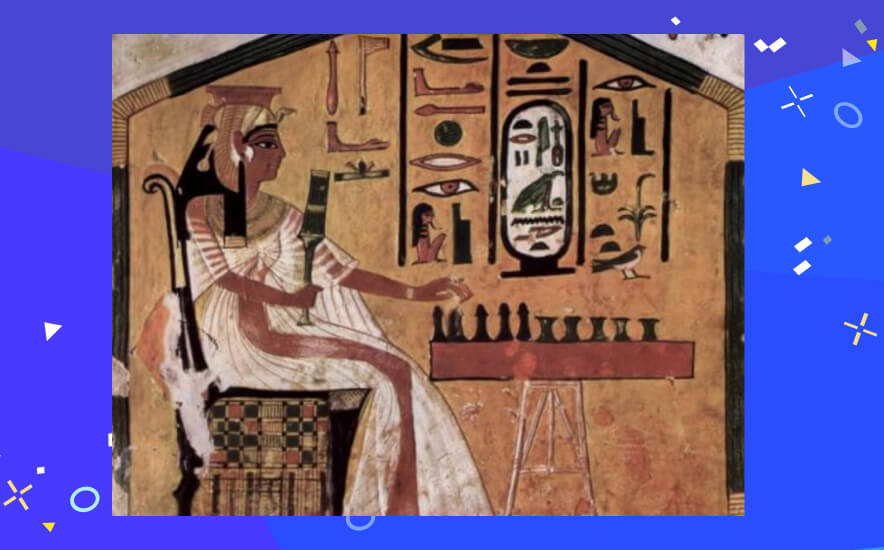
Queen Nefertari playing senet.
In 2023, a group of researchers studied playfulness and the importance of play in 837 adults. They found the 5 underlying themes related to being playful:
- Positive emotions
- Organized activities
- Humour
- Relationships
- Experiencing life
Other notable answers from this research included coping with stress and strengthening mental health, being silly, childlike, and creative. Many respondents answered that playing games was part of their personality and they used it as a method of self-expression.
Proyer who has been studying playfulness for about 2 decades offers the following model of Adult Playfulness:
- Other-directedness (playing with other people)
- Lightheartedness (being spontaneous, not caring for the results)
- Intellectuality (loving to solve the problems, playing with ideas)
- Whim (enjoyment in the unusual & grotesque)
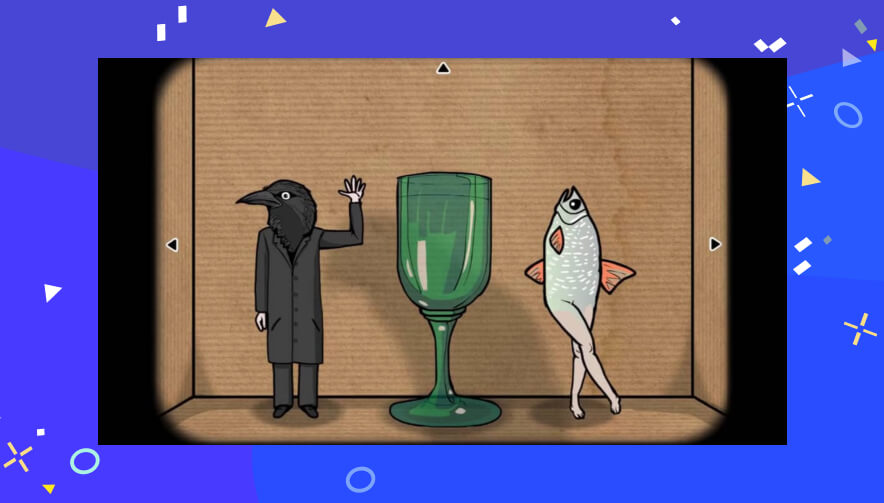
The screenshot of one of the Rusty Lake games. This series falls into the category of grotesque (or more correctly: “How did they even come up with this?”). Despite simple puzzle-solving game mechanics and 2D visuals, the games are mind blowing and full of what-the-hell-was-that moments.
Summing up, playfulness and play are essential elements of our daily activities throughout our life. Despite the fact that adults play less than kids, the importance of play for adults remains high throughout our life. Its lack might signify stress or other mental health issues. Now let’s take a closer look at how playing helps us in adulthood.
Psychological and Emotional Benefits of Play for Adults
In our article dedicated to the psychology of gamification, we discuss in great details the psychoneurological basis of gaming. In this section, we focus more on the general benefits of play in adulthood.
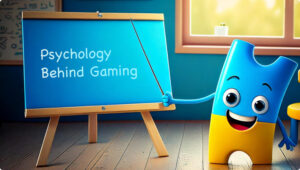
Self exploration
The most important relationship any human will ever have is that with its own self. One of the most well known Ancient Greek myths tells us a story about Narcissus, a man who saw his reflection in the river and fell in love with it. Traditionally the myth is interpreted from the moral perspective judging the young Greek for his self-absorption and vain. Other interpretations can be given. Narcissus was simply fascinated with himself just as any human is. Most human activities and knowledge revolve around ourselves. Some of the greatest masterpieces in art history depict humans.

Caravaggio masterfully plays with light: the boy is lit up against the pitch-black background and his own reflection merely stands out in the still musky waters. Was Narcissus fascinated with himself or with his own darkness revealed by the reflection?
Games give us the ability to safely explore different sides of our personality. Most of us would never steal from others, especially the ones in need, drive unsafely or start a cult. Most of us wouldn’t embark on the risky life of an adventurer and sacrifice comfort for the sake of the world. You would be killed trying to kill a dragon (had they existed in real life). However, games can create settings in which we can do all those things without harming others or risking our own lives.
Self-actualisation
If you look at the two top 3 tiers of the famous Maslow’s Hierarchy of Needs, you can see that playing activity satisfies all of them. We’ll talk about love and belonging in our next section, for now let’s focus on self esteem and self-actualisation. Humans crave to achieve, be respected by others and be unique.
We also want to be creative and spontaneous, and experience purpose, meaning and inner potential. Playing activity can satisfy all the above listed needs. Games give us challenges and an opportunity to overcome them. They stimulate our activities without the necessary stress of work or family-related activities.
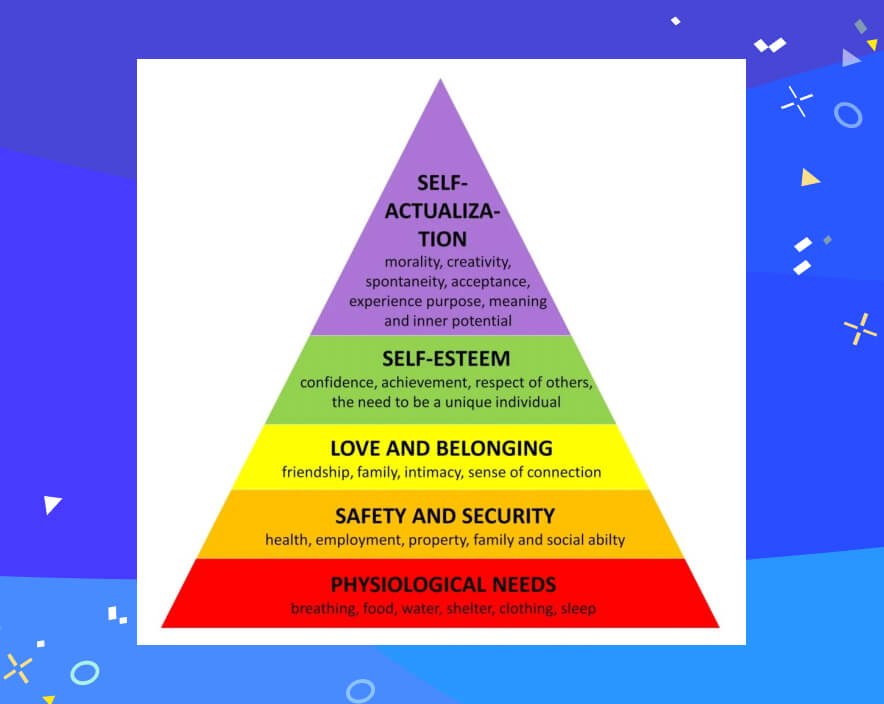
Maslow’s Pyramid of Needs.
One of the best things that playing activity can give us is to conduct trial and error activity (the basis of human cognition) without the risk of significant loss.
Immersion
Immersion is one of the characteristics that enables some works of art (including game) to be singled out as masterpieces. Da Vinci’s Last Supper is a mural painted for the dining hall. The specific location of the figures enabled the dining priests to experience an illusion that they are dining with Jesus Christ and his disciples. Immersion enables us to escape our everyday life and our dull world and become a part of something exciting. It helps cope with stress, boredom and the sense of existential dread.

Westworld TV series depicts a world in which the human-like androids play the roles of NPCs in an enormous amusement park. The top management of the park wants to tweak down the androids to make them act less than a human to avoid an uncanny valley effect on the guests.
Why is Play Important for Healing?
Several schools of psychology use play or its elements in psychotherapy. The idea behind is simple, game setting creates a safe environment where a person can relieve traumatic experiences. When playing, a person can choose a substitute character who will experience the bad things that happened to you and choose to act differently, even defeating your persecutors with superpowers. Sometimes, play is the only way for a person to tell their story.



Rorschach test, popular board game Dixit and Tarot cards use the same principle of free interpretation and psychological projection.
Why is Play Important for Relaxation?
Our culture praises hard work and condemns leisure. But is it healthy? A number of anthropological studies of the last remaining hunter gatherer societies found that people in these societies spent 14-20 hours a week working (this time didn’t include cooking, childcare or house maintenance). The rest of the time, people engaged in leisure and social life of their respective groups.
Interestingly, according to another research, hunter-gatherers spent less time taking care of children (compared to modern involved parents). On average a woman had 4 children throughout her life with 4-year intervals between births. Once weaned, the kid joined a multi-aged group of children who took care of them along with other members of the society, giving their mother the ability to actually live her life and enjoy it.
In contrast, modern full-time workers spend 8.49 hours working daily (translating into a 42.45 hours week, twice as many hours as hunter-gatherers). Add to this the time we spend on house chores, child rearing, and commuting. We don’t have that much time to relax, and we really need it.
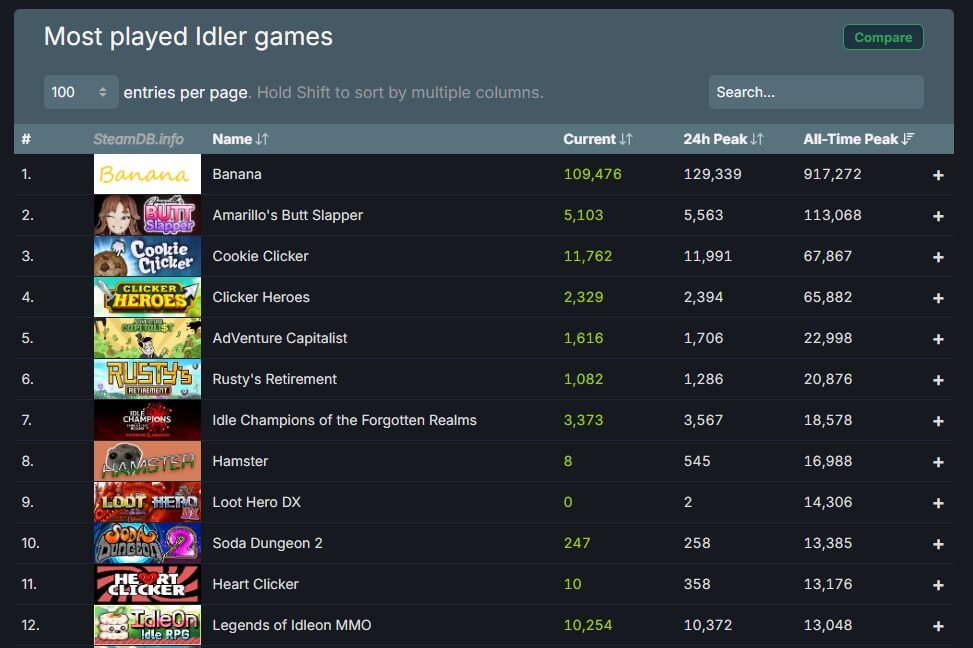
Steam chart showing the number of people currently playing idler games. The top of the chard is occupied by Banana with the all-time peak of 900,000+ players. The gameplay of Banana is simple: you click the banana. Period. Like we said, people need to relax.
Social Benefits of Play in Adulthood
The importance of play for social connections is often underestimated. Furthermore, some playing activities are associated with lack of social skills and even antisocial behavior. Many people quote the researchers of the social learning school of psychology, for example, Bandura (his famous claim that children learn aggression from the media). In time it transformed into a popular argument that video games cause violence. What people fail to mention is that Bandura outlined three main sources from which children learn aggression (not just media), two others being family and community.
Unfortunately, recognising dysfunction in one’s own family or community is very hard. It’s much easier to find a scapegoat for the existing problems. As a result, the importance of play for adults is often overlooked. We’d like to fix it now.

According to Game Developer, the interest and demand for games with cooperation gameplay is steadily growing.
Here’s how playing helps adults and children alike:
- Learning to recognise, respect and emphasize with others’ emotions.
- Developing social skills like cooperation and communication.
- Learning how to compete in a healthy way.
- Honing team decision-making skills.
- Satisfying the need for communication, connection and belonging.
- Building relations and friendships with other people.
Other Benefits of Play for Adults
In this section, we shortly cover other advantages of play for adulthood, starting with physical health.
What are the Benefits of Playing Games for Physical Health?
Playing games is often associated with a sedentary lifestyle. However, not all games keep you in one place for a long time. Playing sports can have long-term positive effects on human health. There’s also a whole range of board games that requires agility and fitness.
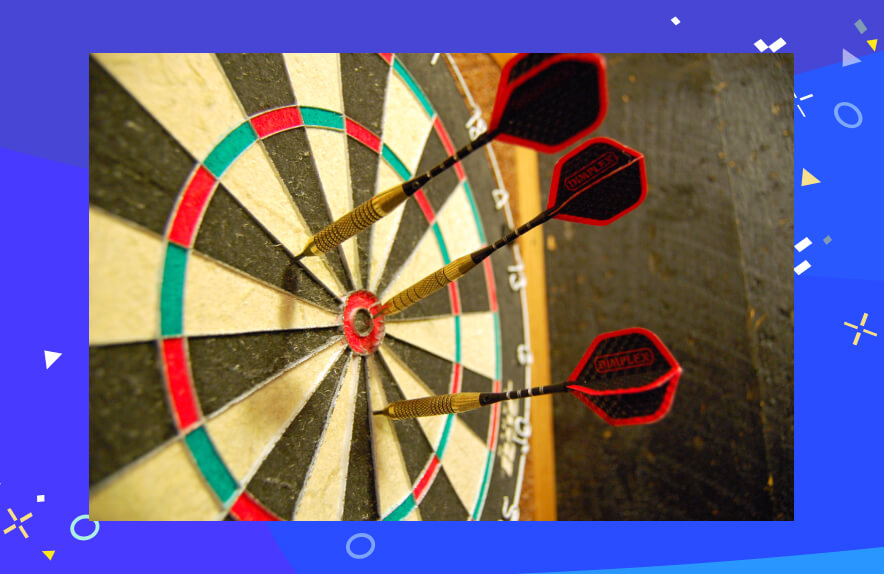
Darts is an example of party game that requires agility.
The development of technologies also created a whole series of video games that require physical activity. Many people consider sports boring as hell and even try to go to the gym with a book or smartphone to play while on a treadmill, crosstrainer or exercise bike. These individuals can benefit from physical video games because they can actually be enticed to do sports and get the necessary dopamine for exercises.
The Importance of Play in Professional Life
What are the benefits of playing games to your professional life? At first glance it might seem that games stand in the way of Many successful contemporary entrepreneurs emphasize the importance of playing. They point out how their playing experience shaped them as businesspeople and helped acquire skills necessary to run a successful business. It enabled them to learn how to:
- Think quick in critical and stressful situations.
- Be a team player.
- Think outside the box.
- Lead others.
- Lose over and over in order to win.
- Analyze mistakes and turn them into gains.
Overall, many modern companies use play as part of employee training and team building. They also organize office spaces to incorporate gaming rooms for employees to relax and unwind.

TripAdvisor’s game room, check out more cool office game rooms
The benefits of gaming activities support the idea of the importance of play for adults. In our next chapter, we discuss how you can engage in this activity and retain the joy and spontaneity in your life.
Ways to Play as an Adult
Though many people associate play with childhood, we definitely define it as one of the most positive activities for adults. From sports to In this section we discuss a number of ways to play as an adult.
Sports
Sports is a traditional and probably the most ancient form of playing. Many mammalian games resemble sports, wrestling and running in particular. Obviously, it isn’t as organized as human sports but bears the same significance: the development of dexterity, speed and physical strength necessary to succeed in the survival games.

Stickball game, popular with Cherokee, Choctaw, Chickasaw, Creek, Natchez, and Seminole, had social, ceremonial and political meaning but also provided a great training in agility and teamplay
Most types of sports (except for the Chess which somehow is recognized as a sport by the Olympics) usually requires honing a number of physical skills. Sports’ benefits of play for adults include:
- Physical exercise.
- Training teamplay.
- Spending time outdoors.
- Learning how to compete.
- Training the speed of decision-making.
Board Games
Known throughout the written history of humanity, board games provide a wide range of gaming and fun options: from dexterity training to games of chance to complex strategies. Many board games are competitive, but today you can find a substantial amount of games that are played cooperatively. Board games are among the most positive activities for adults. Their benefits include socialisation, fun, and creativity.

Modern historians think that knucklebones was one of the first board games dating back to the 5000 BC
Improvisational Theatre
Performing arts are widely acknowledged to be positive activities for adults highly recommended for mental health. Unlike its classical counterpart, the improvisation theatre provides a less structured field boosting creativity and play. This type of theatre breaks the fourth wall as actors often engage with the audience.
The usual session starts with the audience giving a random word or a situation that sets actors in motion. The troupe’s task is to enact and then develop the situation on stage. The key benefits of this type of play for adults is learning to work as a team, having a lot of fun, training your creativity and spontaneity.

Improvisational theatre is a great place for fun and chaos
D&D
D&D is an amalgamation of improvisational theatre, board games, and drama stretched in a series of chaotic episodes you will remember with equal amounts of glee and horror. Set in a fantasy world, it has well-balanced rules, a bunch of handbooks to help you set the world and game environment. Magical races, a wide variety of classes, and your own backstory can help customize your character and create epic stories (like a half-demon paladin on a crusade to make the world better for the sake of his money-craving cult). The D&D community of ~13.7M players worldwide has created enough fun storylines for your and your peers to explore.
The downside? You need at least 2 more people to actually play, which can be hard due to the conflicting schedules of adults.
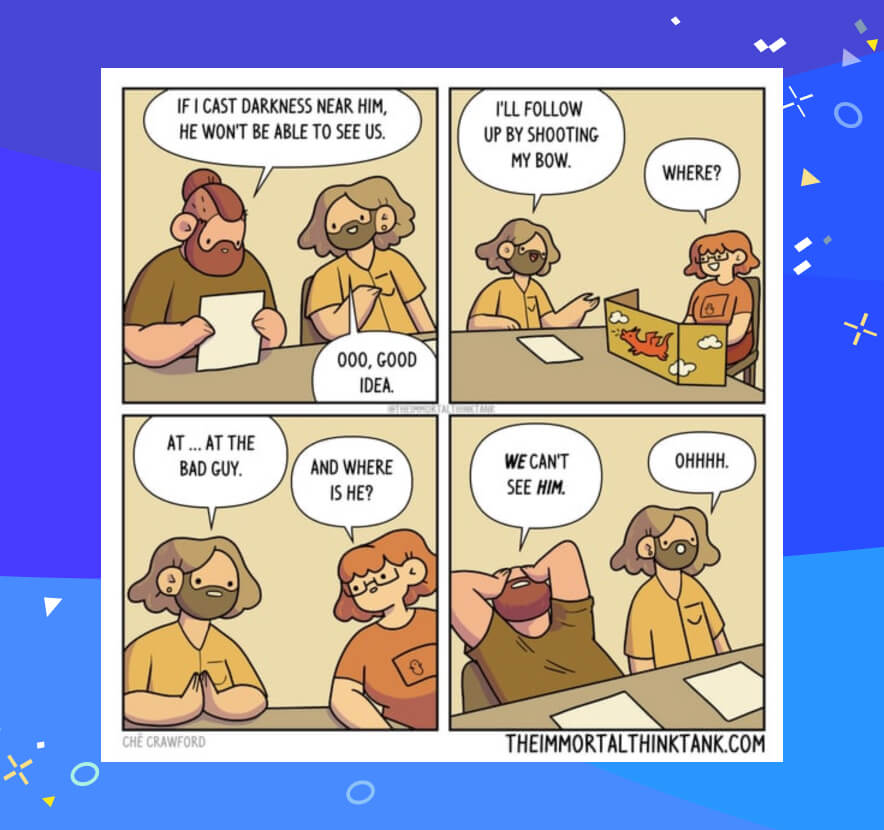
D&D requires careful strategizing and teaches you to keep in mind a lot of things at the same time during the battle
Arcade Games
Still popular to this day, arcade games is a one of the great ways to play as an adult and connect with others. It’s a large category of various games available at amusement arcades or other public spaces. Usually “coin-operated”, arcade games have both chance-based and skill-based mechanics. They can be played solo and with friends. Benefits include the specific “oldie” vibe, socialisation, and fun.
Video Games
Video games are probably the most diverse category of games. Played using PC, game console or a smartphone, they offer lots of fun, creativity, competition, and teamplay. The benefits include staying home and being less dependent on friends availability since many multiplayer games enable you to team up with random strangers from the internet.

Simple and sweet, Snufkin Melody of Moominvalley, is set in one of the best magical worlds created by Finnish writer Tove Jansson and follows one the most beloved child book characters.
Games with Children
Playing with kids can be very fun. Children have vivid imagination and they can easily lose in play. There are several hidden pitfalls you should remember though. The younger the child the less interesting the game will be. Playing with preschoolers can be more tedious than entertaining. Another important aspect is that children have very big and intense emotions that can go wild in the course of the game. Finally, as an adult, you need to take care of their safety during the game.
Interesting fact
Adults of some mammal species do not engage in play with each other. Leaving this activity solely for their interactions with the young. Some reasons why grown-ups do not engage in playing with each other is the risk of misinterpreting the play with fighting. The majority of apes, however, engage in playing activity on a regular basis and use it as a social glue. Recent findings show that our closest relatives (chimpanzees, orangutans, bonobos, and gorillas) enjoy playful teasing in their groups.
Escape Rooms
Rooms with puzzles that were first introduced on TV and then spilled out in the real world becoming a lucrative business in cities and towns all over the world. It’s a type of cooperative game when you need to find the way out of an enclosed space. To do it, you need to solve a number of puzzles with your peers. It’s a fun time to spend as a group and it has become a popular attraction for parties like birthdays, engagement, or work events.

Adults having the time of their life in the escape room
Why Adults Stop Playing
Despite the importance of play for adults, many stop doing it when they grow up. Let’s try to unpack it.
In Metamorphosis, one of the most renowned literary works of the 20th century, Kafka depicts Gregor Samsa, a salesperson whose only activity in life is work for the sake of supporting his family. Gregor’s existence is merely instrumental. He does a lot of business trips where he forms temporary superficial connections with people. However, his life lacks entertainment and joy, and he is basically devoid of personality. As a result, he turns into a “monstrous vermin”, which Kafka specifically requested to never depict to emphasize Gregor’s instrumentality and lack of personhood.

Modern interpretation of Gregor Samsa by Pedro Miranda for RideThePen
Some say Kafka’s literary work was prophetical for the whole XX century. We believe it was a profound depiction of a specific state of human mind and life, when a person is devoid of joy and spontaneity. Such a person sees themselves as a tool to achieve a certain result rather than a human being with desires and needs. With the loss of the ability to experience joy comes the loss of ability to engage in play. This section that begins with existential angst explores the underlying reasons of playless adulthood, the next one gives actionable tips to recover from it.
Societal Pressure
Not all people understand the importance of play in adulthood. This activity is often associated with child activities. In many cases, the only adults who aren’t looked upon by others for playing, are professional athletes and parents. However, for the athletes it’s the means to earn money and prestige for their institution, be it their university, team, or country, not the source of joy and relaxation. Some modern adults sadly view games as a waste of time even for children, let alone grown-ups. It’s a sad but not illogical development of Western European educational thought throughout past centuries.
Check out the screenshot below, it’s a famous work by a Flemish Renaissance master depicting children playing games.
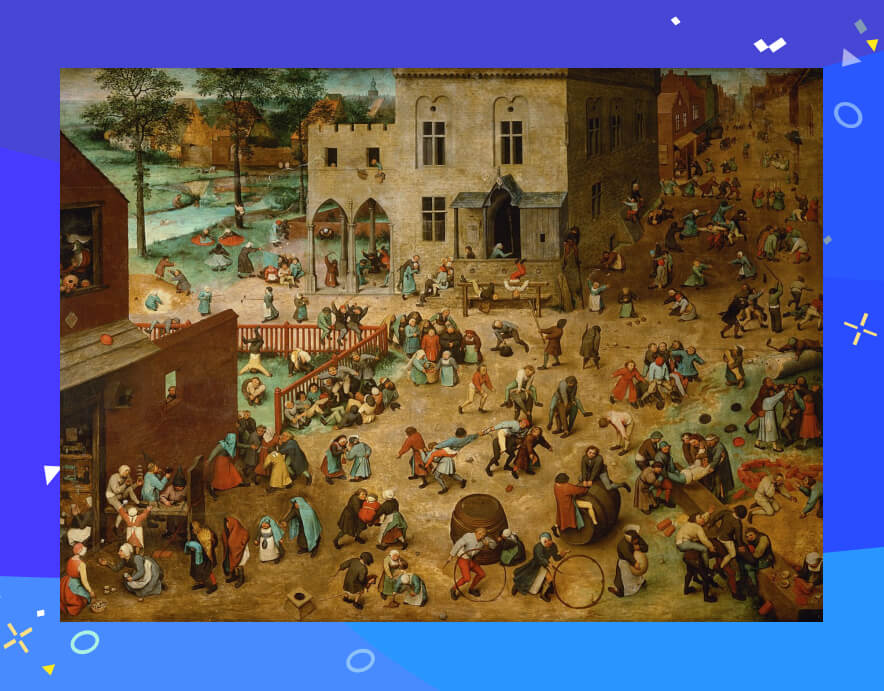
Children’s Games (1560) by Pieter Bruegel the Elder depicts at least 80 different games. This masterpiece illustrates not only the importance of games to humanity but also our rich creativity that brought to life so many ways to play
The most remarkable thing about this painting is the sheer engagement of children in the games. You can tell they do it just for the fun of it. Remarkably, it was painted during the period when games were considered yet another way to teach valuable things (more on that in this article) rather than the opportunity for a child to decompress. Many tutors of the time (and later on) used the breaks between lessons to practice, for example, classical languages.
Such an approach deteriorates the purpose and meaning of playing activity altogether. It is a smaller indicator of our society where your success in life is determined by a person’s working productivity rather than their general happiness and life contentment. Meanwhile, playing activity is valuable on its own, not for educational purposes, not for skill development, but simply for our wellbeing.
Stress
Constant stress impacts both spontaneity and intellectuality – some of the core drivers of playfulness (according to Proyer). If you had a tough day at work and returned to household chores and family issues, all you want to do is lay down and do nothing, or yet better – just disappear.

Recent Stress Statistics
Some of the symptoms of stress include pain, fatigue, difficulty breathing, panic attacks, inability to focus, irritability, sadness, dizziness, anxiety and other similarly debilitating issues. These symptoms drain your energy. Meanwhile, to engage in play actively, you need to invest energy first, which is hard to do when you are already drained.
Lack of Time
Many playing activities are stretched in time, and it includes preparations. It’s much easier when you play video games available on your phone. However, when it comes to more complex activities like sports and board games, preparations might take just as much time as the game itself. You need to collect the gear and take a trip to the venue (or prepare your house to take in guests). If your game depends on other players, you will have to jungle several colliding schedules. The older your playmates get, the harder it is to allocate time.

Average hours different age groups spend on leisure activities per day
Lack of Peers
In the pie chart above, you can see that people who have the least amount of time for leisure are middle-aged adults (35-44 years old). On average they have less than 4 hours of leisure time. It’s quite understandable: many people of this age group are building careers, raising children and in some cultures begin taking care of their ageing parents/grandparents. So, if you join this age group, chances are most of your friends of similar age don’t have much time to play with you even if you aren’t burdened with family or long working hours. Furthermore, many people fail to understand the importance of play in adulthood and stop doing it all together.
Lack of Means
“When I was a child I always dreamt of growing up and buying myself a PC and playing all the games I missed out as a kid. Now I am a grown up. And games are freaking expensive.” Does this sound familiar? That’s because it’s true. Supporting our gaming hobby can be pricy, especially when there are other expenses that take priority, like student loans, house mortgage or rent, grocery shopping, etc.
Check out the New York Times’ list Best Board Games of 2024. The prices of the games range from $15 to $75. Single baseball player spends somewhat between $1,500 and $3,000 annually (depending on their role) – and these are the prices for students. The gear and the fees for adults can be much higher. “Fresh” price for an AAA video game titles like Red Dead Redemption can range anywhere between $70 and $40 depending on the bundle and content. However, the price of the PC capable of providing decent performance for a game like this one starts at around $1,000.
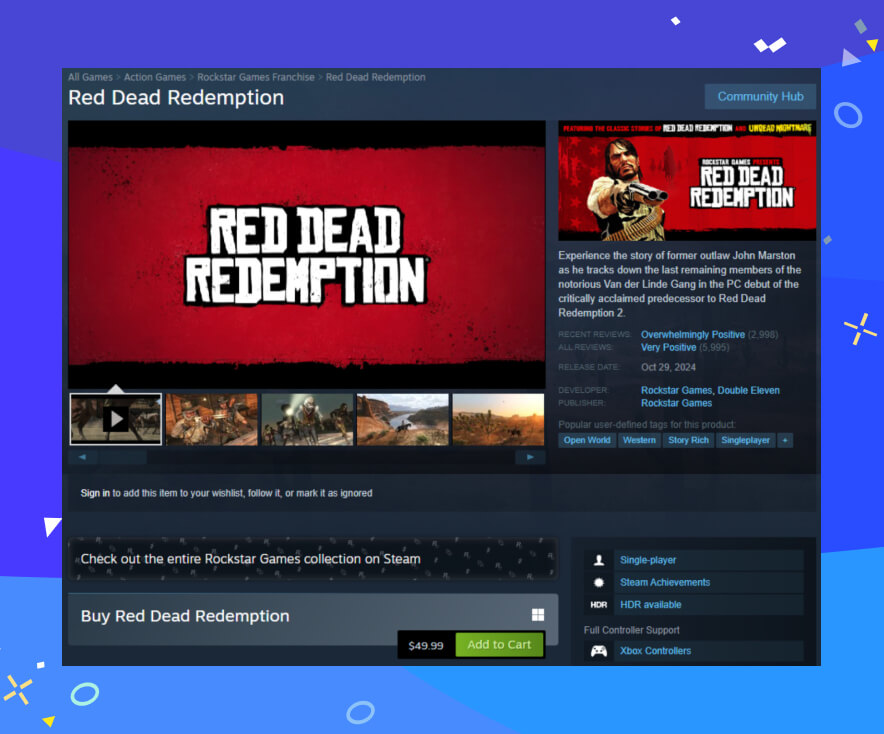
Red Dead Redemption release on Steam
Obviously, much depends on the game’s replayability factor. Some games (like simulations) technically never end and are only limited by your imagination. However, unless you are a hardcore fan (like some players of Skyrim fandom), chances are one day you’ll be fed up with the gameplay and want something else.
Short summary: Many adults stop playing due to a plethora of reasons including stress, losing their playmates, societal pressures, lack of time, and lack of means.
Reclaiming the Power of Play in Adulthood
Reclaiming the power of play in adulthood is on par with reclaiming your childhood. In this section, we provide several tips on reclaiming the play as one of the most positive activities for adults.
Step 1. Identify the reason
In the previous section we discussed the most common reasons why people stop playing. Understanding which one(s) impacted your life is the first step to fixing it.
Step 2. Recognize the importance of playing for you
Simply identifying the problem isn’t enough. You need to understand the value of playing activities for your life and psychological well-being. Upon realising that they have stopped playing, many people shrug it off saying it’s just play and refuse to take the issue seriously. As a result, they continue living without any positive changes. Reclaiming the power of play requires time, effort and dedication, and sometimes outside help.
Step 3. Understand what can be done immediately & long-term
Once you’ve identified the reason and acknowledged the importance of playing, you can start acting. Often there are immediate things you can do. For example, you lack time for play because of the busy week and you want to play solo. You can schedule the specific time when you play your favourite game. Scheduling will create a sense of importance for the activity, and you will always have this slot busy, when you are planning other things.
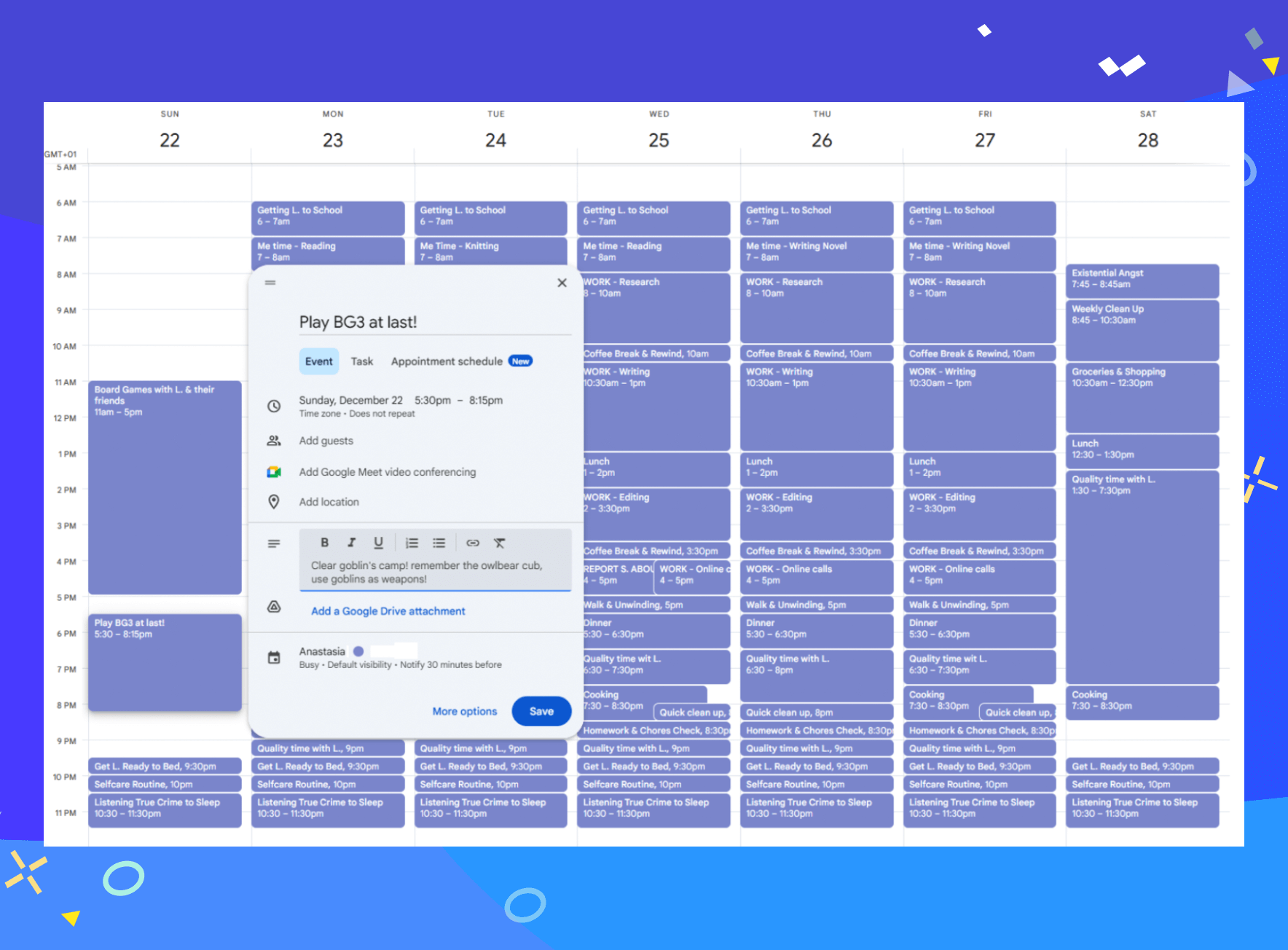
A typical schedule of a millennial knowledge worker / parent with a brave attempt to schedule a game session as a reward for productive adulting.
🔝 Tip
If you are a millennial, chances are you won a gold medal in the Sabotaging Selfcare category of the Adulting Olympics. You might start jumping through the hoops trying to trick your brain into believing you don’t deserve some fun just yet. If your work productivity is your top priority, telling yourself that fun has a positive impact on it. It’s a short-time fix before you finally embark on the journey of selfcare and selflove.
Tips to Reclaim Playing as an Adult
Recognising the importance of playing, we created a list of actionable tips that will enable you to revamp your gaming activities.
1. Find playmates
Finding playmates as an adult is much harder than as a child. You never know if a person is open to playing. Luckily, many websites & apps offer help in finding friends to play games together. You might want to look into a younger generation since they have more free time and are more eager to play with you.

An example of an app that helps find game mates online
2. Visit your local community center
Community centers offer facilities for playing sports and recreation often for free or at a minimal cost. You can also look for local sports teams in your neighbourhood and ask to join them. It’s also a great place to look for new people with potential of growing your friend base.
3. Check out gamers hubs
Depending on the country you live in, it can be an Internet club, an anti-cafe, game cafe, or a game shop. These places often have a variety of board games that visitors can play for free. You can also come with your game. Anti-cafe usually charge people per hour; game cafes earn money because visitors order drinks and snacks; and game shops use play sessions to advertise their products.
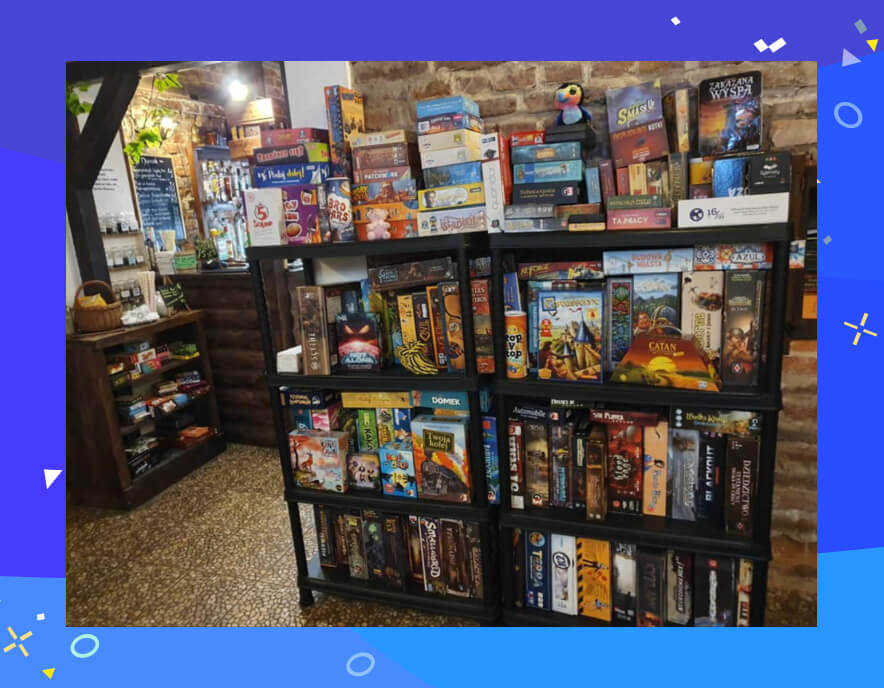
A game cafe in Central Europe with a stand of board games free to use in the cafe
4. Start goofing with your friends & family
As sad as it sounds, many adults stop goofing around out of fear of being judged or because of stress or because they don’t consider it appropriate. At the same time, this type of play has all the elements that are critical to our wellbeing: creativity, spontaneity, fun, and connection with others. At first it might feel bizarre but the more you do it, the more natural you’ll feel (fake it until you make it as they say). We suggest avoiding pranks, starting really with mild fun activities, and do it only with people who are good at voicing their discomfort and setting boundaries.
5. Play solo
A number of games are designed for solo play from classical Solitaire to much more complex board games and video games. The advantages of playing solo is your complete independence from others’ availability.
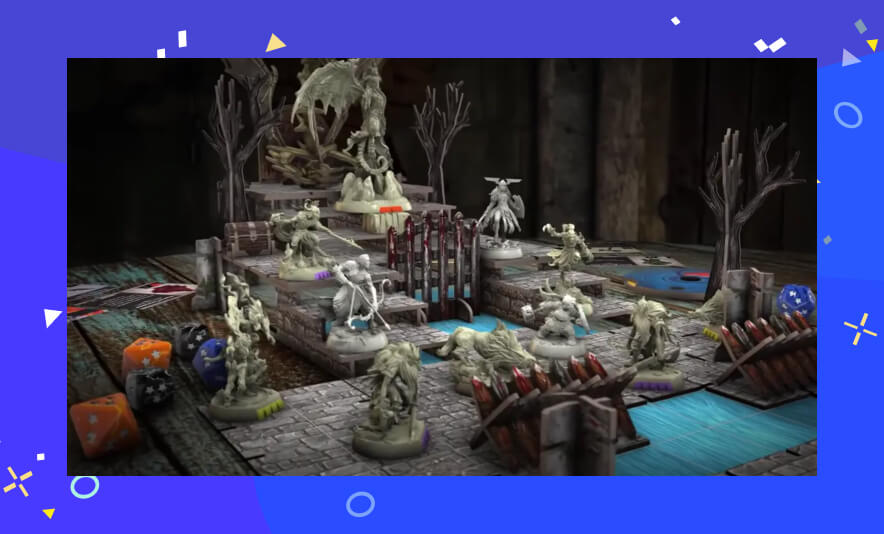
Descent is an example of a game that players can do solo.
6. Go to therapy
A counselor can help you cope with events and emotions that cause stress. They can help you remove the blockers that prevent you from engaging in playing activities. Therapy can also help you set better boundaries with people who try persuading you against playing activities.
7. Check out your workplace
Many modern businesses offer game rooms and more or less regular game activities for their workers. Higher chances to find such a team in the IT business or any company that mostly employs late Millennials and early Gen Z. You can start the fun time during the lunches on your own.
🔝 Tip
Most offices have little square blank notes for quick memos. They are great for playing a 10-second drawing game. The rules are simple. You say a random word and start a 10-seconds timer. During this time people need to quickly draw this word. The purpose is not to excel in drawing (it’ll be so much more fun!). Then you share your drawings and have a good laugh. After several sessions, you can display the gallery of drawings on an office board or a fridge.
8. Save on your hobby
In the previous section, we talked about the prices of games and sports gear. These prices are for new items. If you spend some time, you can find a reseller who will sell you their gear (or games for that matter) at a much lower price.

Price comparison: Fallout 76 costs $40 on Steam and $5 on a game reselling website
🔝 Tip
If you have an old PC and have no way to upgrade it right now due to its high prices there are several ways you can work around:
- Play on low graphic settings.
- Shut down all the unnecessary programs running on your PC.
- Look for software to compensate for your legacy GPU.
- Set RAM priority to high in your PC.
- Check out old or indie titles, you can find amazing gameplay.
- Use game streaming platforms that enable you to play games remotely.
- Try mods on your favourite games to prolong the experience.
9. Play with kids
If you don’t have yours, check out your family or friends. You might have younger siblings & cousins, nieces and nephews, or any other young relatives (like an uncle or even a 12-year-old grandma!). You can become the fun adult in their life. It will help you strengthen familial bonds (or your friendship). You will be able to help an overwhelmed parent by free babysitting. And you will have a lot of fun!
Summing up, the importance of play in adulthood shouldn’t be overlooked. Reclaiming playing activities requires time, effort and dedication. With proper resources and planning you can achieve results and return games in your life.
Why Society Needs to Embrace Play for Adults
Over the past decades, we’ve seen a positive shift in attitude towards playing overall and video games in particular. Some of it can be attributed to the global access to the internet, smartphones and mobile games. We believe that adults will play more, not less. Businesses that understand the importance of playing in adulthood can leverage games to grow their businesses. One of the key trends of recent years is gamification of marketing.
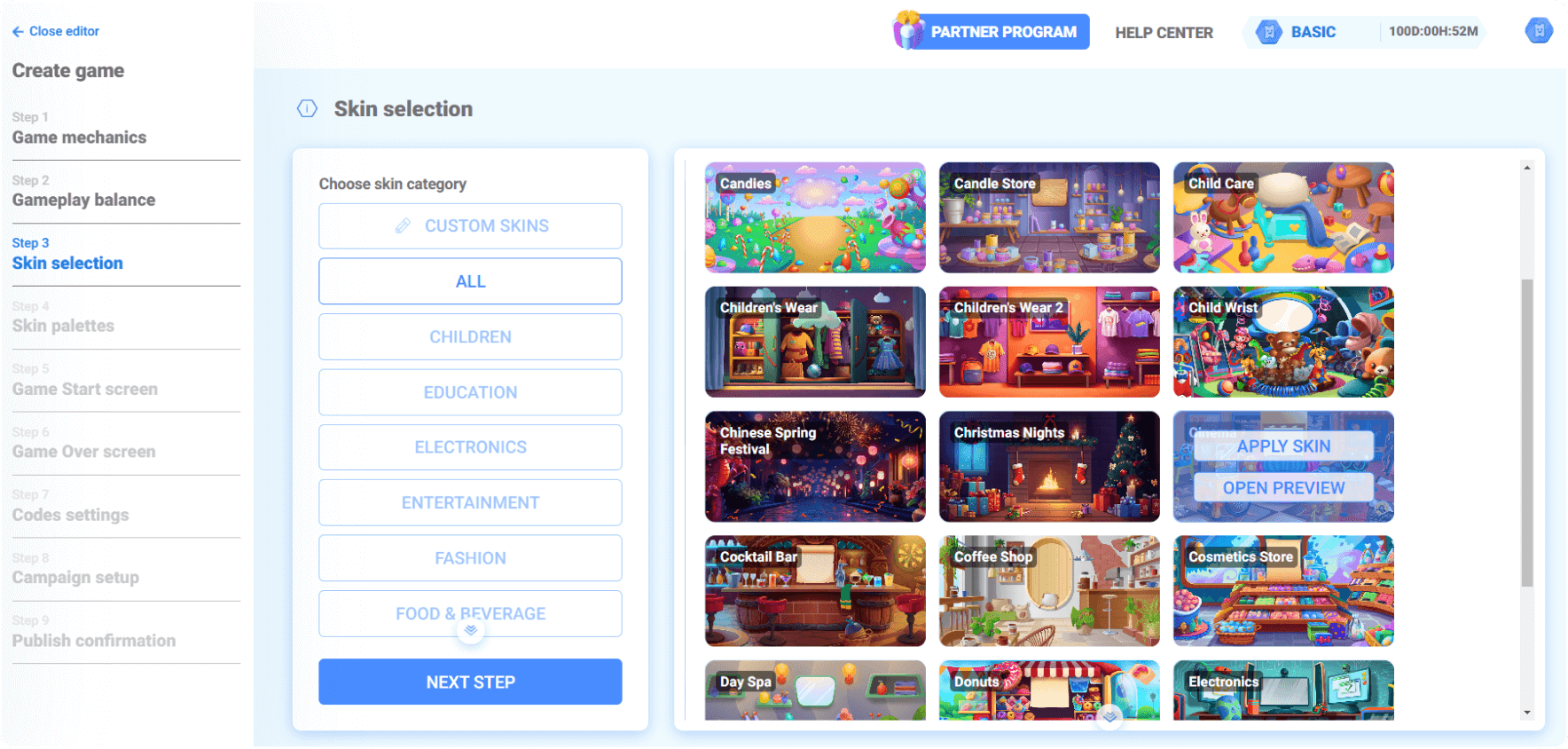
Creating games with Marketing Gamification Platform
Marketing gamification is the introduction of games in your marketing channels to increase conversions and retention. Learn more about it in our Marketing Gamification Guide.
Winday Solutions for Promoting Play in Adults
Understanding the importance of play for adults and games’ place in future leisure activities, Winday created a marketing gamification platform.
Building and launching games with Winday Platform can help you:
- Maximize Brand Engagement.
- Boost conversions.
- Retain and upsell more.
Start with all features on Free Plan and complete your first Instant Game or Tournament in less than an hour! Launch a gamified offers quickly and get +49% engagement and 85% session duration within one campaign.
Winday Free Plan
Explore Winday’s Gamification Platform totally for free. Create quick, fun, and rewarding games that boost engagement and retention.
start your free planRate this article
FAQ
Keep Learning
Marketing Calendar 2025 - Gamified Marketing Campaign Plan
Looking for ways to add gamification on your marketing calendar 2025? Check out our guide to gamified marketing campaigns for the upcoming year.
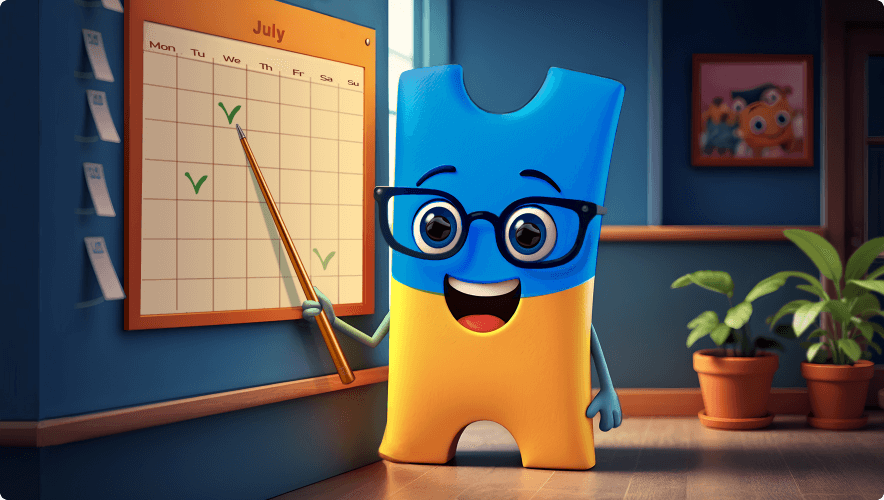
The Psychology Behind Gamification for Successful Marketing Strategies
How does gamification in marketing work? Dive deep in gaming psychology, understand the drives that make us enjoy games, and learn how you can harness gamification for your next marketing campaign.
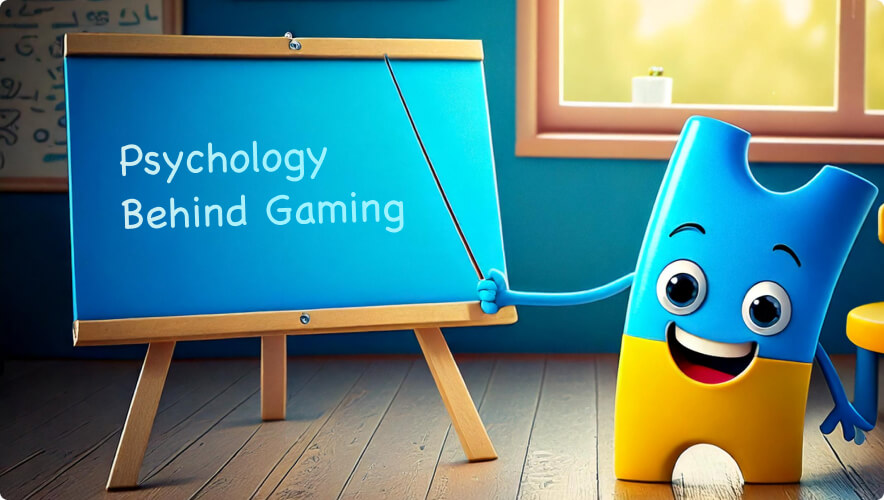
Affiliate Marketing Guide
Check out our guide on Affiliate Marketing. Learn how it can help brands achieve their marketing goals and publishers make most of their digital assets and large following.



